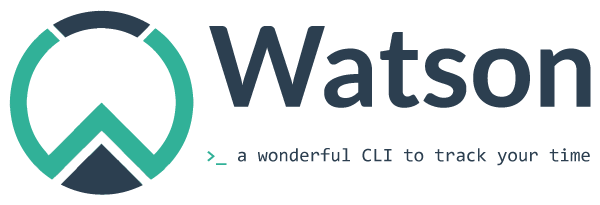Watson is here to help you manage your time. You want to know how much time you are spending on your projects? You want to generate a nice report for your client? Watson is here for you.
Wanna know what it looks like? Check this below.
Nice isn't it?
On OS X, the easiest way to install watson is using Homebrew:
$ brew update && brew install watsonOn other platforms, install watson using pip or pip3, depending on which one is available:
$ pip install td-watsonor:
$ pip3 install td-watsonIf you need more details about installing watson, please refer to the documentation.
Start tracking your activity via:
$ watson start world-domination +catsWith this command, you have started a new frame for the world-domination project with the cats tag. That's it.
Now stop tracking you world domination plan via:
$ watson stop
Project world-domination [cats] started 8 minutes ago (2016.01.27 13:00:28+0100)You can log your latest working sessions (aka frames) thanks to the log command:
$ watson log
Tuesday 26 January 2016 (8m 32s)
ffb2a4c 13:00 to 13:08 08m 32s world-domination [cats]Please note that, as the report command, the log command comes with projects, tags and dates filtering.
To list all available commands, either read the documentation or use:
$ watson helpIf you want to contribute to this project, please read the project Contributor Code of Conduct
Watson is released under the MIT License. See the bundled LICENSE file for details.



